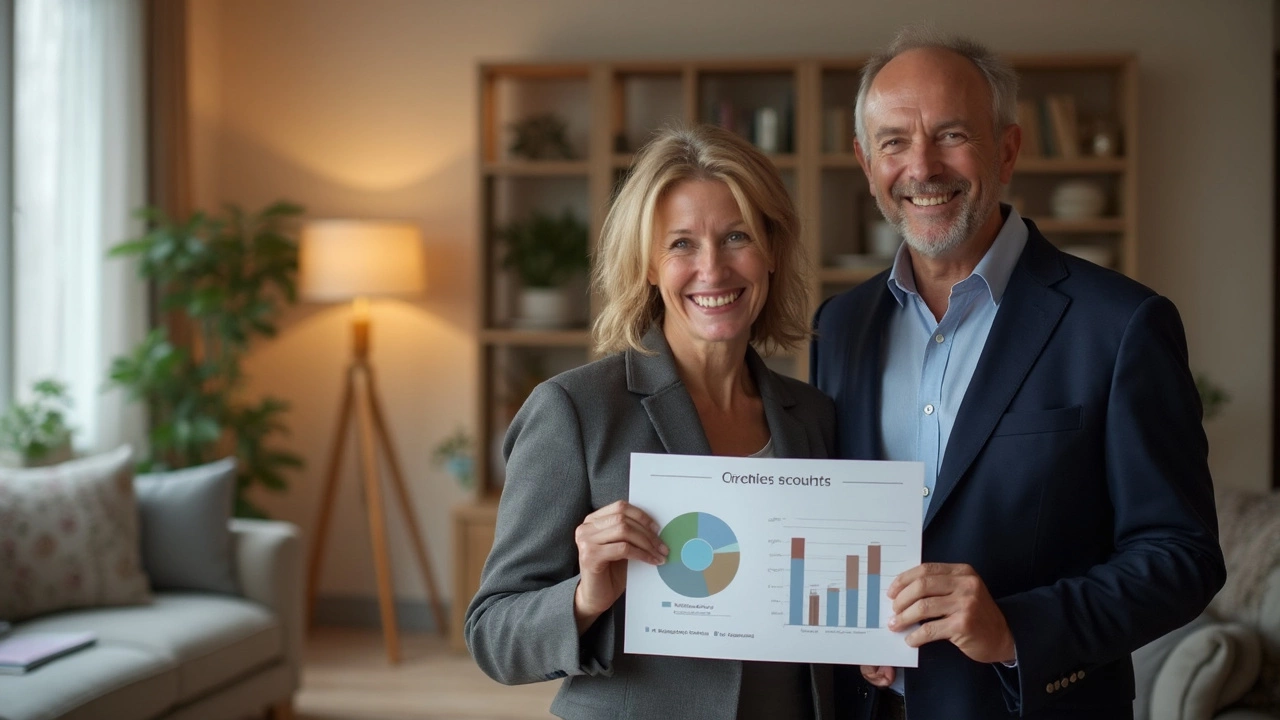Feeling unsure about your money? You’re not alone. Most people wonder how to save a little more, pay down debt faster, or make smarter choices with their home loan. The good news is you don’t need a finance degree to get on track. Below are easy steps you can start right now.
Start with a budget that actually works for you. Grab a notebook or a free app and write down every cash flow – income, bills, groceries, even that daily coffee. Once you see where the money goes, you can trim the excess. A simple rule is the 50/30/20 split: 50% for essentials, 30% for lifestyle, 20% for savings or debt.
Saving doesn’t have to be a mountain. Set aside just $20 a week – that’s $1,040 a year – and watch it grow with interest. Even a modest 1% yearly rate adds a nice boost. Use the weekly savings calculator idea from our "How Much Do You Save Putting $20 a Week Aside for a Year?" guide to see real numbers.
Don’t overlook tax‑free options. If you’re in the UK, an ISA is still a solid choice in 2025. It lets your money grow without paying tax on the interest or gains. Our "Does ISA Still Exist?" article breaks down limits, eligibility, and why it’s worth a look.
Got a mortgage? Knowing how much equity you need to remortgage can save you a lot of money. The "How Much Equity Do You Need to Remortgage in the UK?" guide shows how to calculate LTV and what lenders expect, so you can shop for lower rates confidently.
If debt feels heavy, consolidate wisely. Our "Can You Be Denied Debt Consolidation?" piece explains why lenders might say no and what you can do to improve your chances – like fixing credit score issues or reducing your debt‑to‑income ratio.
Thinking about retirement? A pension plan still matters. The "Pension Plans Explained" article walks you through different types and how to maximize the benefits. And remember, pension income can be taxable, so check the "Is Pension Income Taxable?" guide to avoid surprise tax bills.
Investing doesn’t have to be risky. Start with low‑cost dividend stocks for passive income, as highlighted in our "Best Dividend Stocks for High Passive Income" post. If you’re curious about crypto, a small test – say $20 in Bitcoin – can teach you the basics without big exposure, per the "Is It Smart to Invest $20 in Bitcoin?" article.
Finally, keep an eye on credit. Zero‑percent financing looks tempting, but it can affect your score if you miss payments. Our "Does 0% Financing Hurt Your Credit Score?" guide explains how to use these offers safely.
Putting these tips together builds a healthier financial life step by step. Start with a realistic budget, add a small weekly saving habit, use tax‑free wrappers like an ISA, and tackle high‑cost debt first. Your money will thank you, and you’ll feel more in control every day.

Explore if saving $600 a month is a solid financial move, how it fits emergency funds, debt, and retirement, plus practical tips and a real‑world example.

Zombie loans are debts that borrowers can’t really pay back but are allowed to keep rolling by lenders, leaving people and banks stuck in a financial limbo. This article explains what zombie loans are, how they’re created, the risks for borrowers, and the dangers for lenders. It also covers signs to watch out for and tips to avoid getting trapped by a zombie loan. If you’ve ever struggled with repayments or wondered why your lender keeps extending your loan, you’ll want to read this.

A credit score of 800 or more is a rarity, but understanding what it takes can help you reach this elusive goal. Achieving such a score opens doors to better credit card offers and lower interest rates. From spending habits to payment history, it's essential to know what lenders look for. We explore practical tips and the lifestyle adjustments needed to potentially join this elite group.